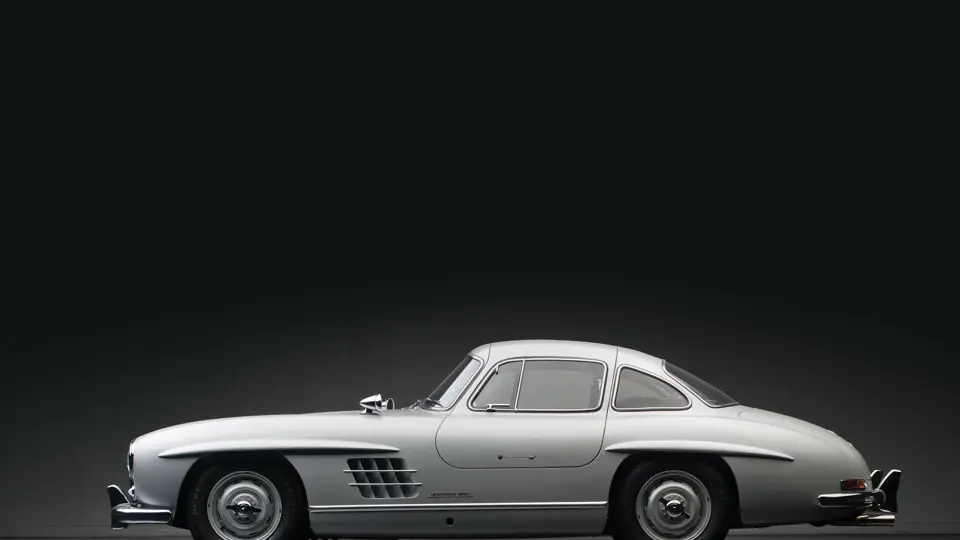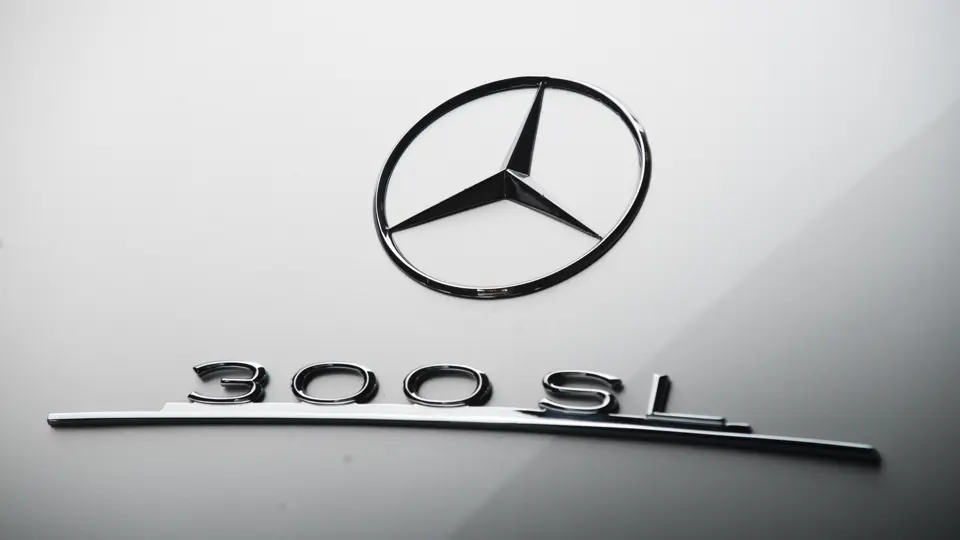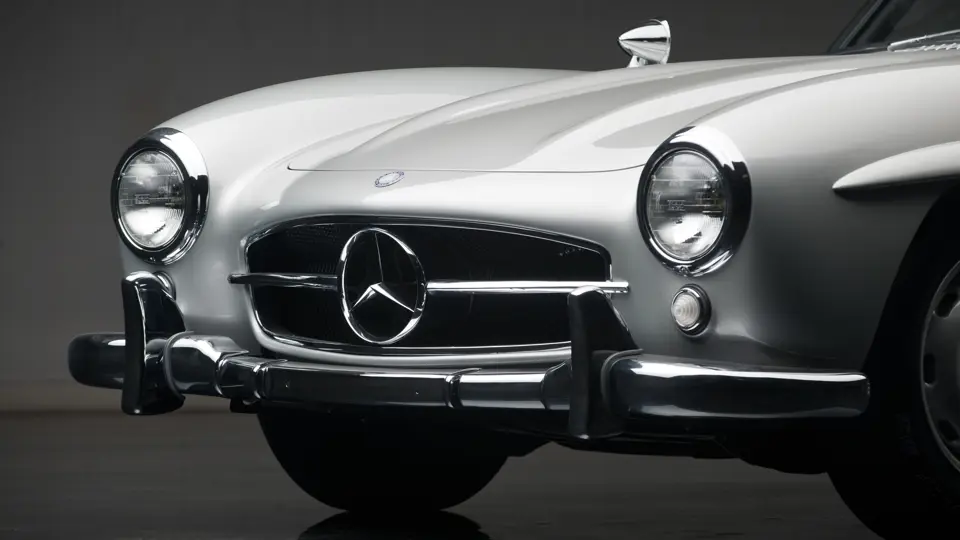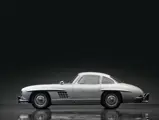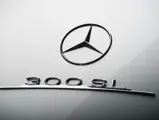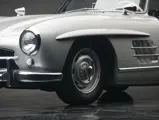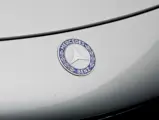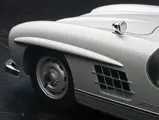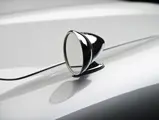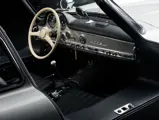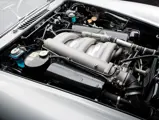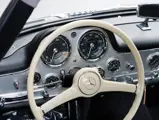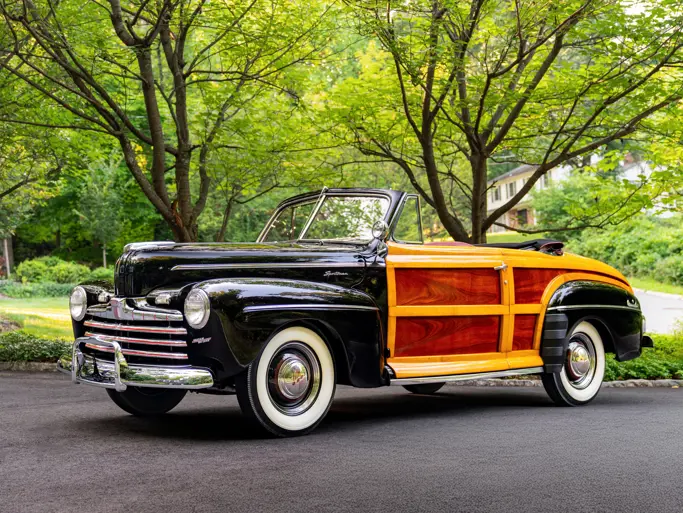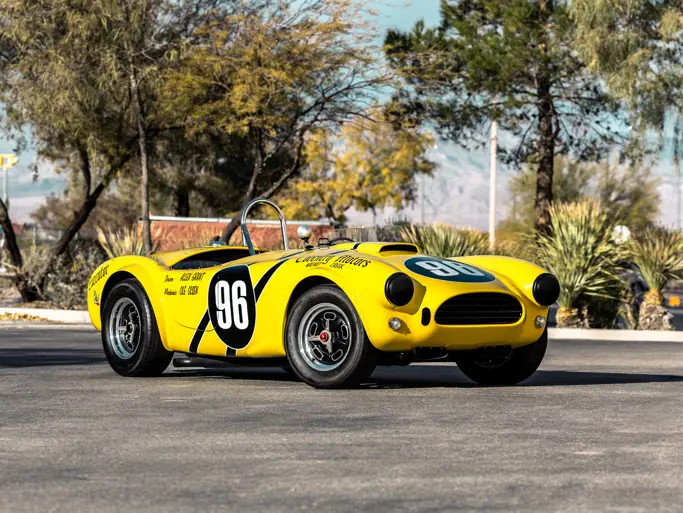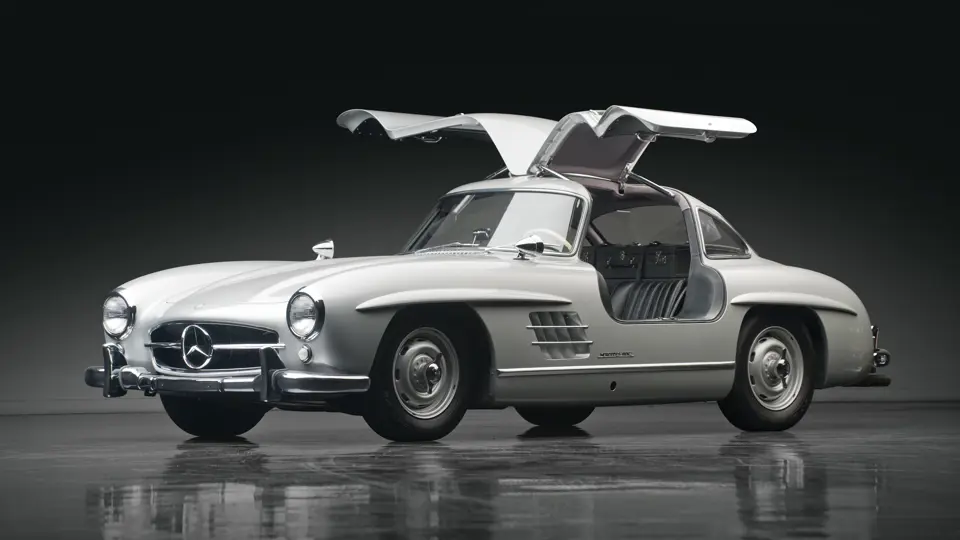
1955 Mercedes-Benz 300SL Gullwing
{{lr.item.text}}
$1,237,500 USD | Sold
{{bidding.lot.reserveStatusFormatted}}
- One of the finest examples of the Star and the Laurel’s legendary sports car
- Known history, with three owners from new
- Rudge wheels, belly pans, fitted luggage, “sport camshaft,” and other highly desirable features
- Beautiful Kevin Kay restoration
195 hp (DIN), 220 hp (SAE), 2,992 cc SOHC six-cylinder engine with Bosch mechanical fuel injection, four-speed manual transmission, coil spring independent front suspension, coil spring and swing-axle rear suspension, and four-wheel hydraulic drum brakes. Wheelbase: 94.5 in.
To many, the Mercedes-Benz 300SL Gullwing remains the ultimate road car. That it appeared in production form at all, however, was the result of fortuitous circumstance.
The original 300SL was created for the 1952 season to simply test the waters prior to a full-scale return to racing, and it was intended more as a way to keep the Mercedes-Benz name in the news long enough for the firm’s new Grand Prix car to be completed for 1954. To deem this exercise a success would be a gross understatement—the 300SL’s results included 2nd and 4th at the Mille Miglia, 1st and 2nd at Le Mans and the Nürburgring, the same in Mexico’s deadly Carrera Panamericana, and 1-2-3 at Bern, Switzerland.
While Mercedes-Benz initially had no plans for series production, its U.S. importer, Max Hoffman, had other ideas. Hoffman, a master marketer and a man of great insight, convinced Daimler-Benz to offer a production model by ordering 1,000 of them for sale in the United States. Since the racing 300SL was sourced to a degree from off-the-shelf 300 series parts, it seemed relatively easy for the manufacturer to honor Hoffman’s request. However, the 300SL was, in fact, quite complex and not suited to volume production. Nonetheless, thanks to the persistence and clout of Hoffman, Mercedes proceeded with limited production, and the car was born.
Fuel injection replaced the race car’s carburetors; the Bosch mechanical unit would be the first for a production car. After a handful of early production models were made in alloy, as the competition cars were, the new Karl Wilfert-designed body was largely steel, retaining aluminum doors, hood and trunk lids, and included the bumpers (with over-riders for U.S.-spec cars) and numerous creature comforts, including a tilt-wheel for ease of entry and featuring a sumptuous interior requisite for road use.
Of particular note, the 300SL was the first Mercedes to be introduced in the United States before it was shown in Germany, and when unveiled in New York on February 6, 1954, it took the automotive world by storm. The SL (translated to English as “Sport Light”) moniker reflected the pioneering use of welded tubular-steel frame construction. It also featured a fully independent suspension in addition to its fuel-injected, 3.0-liter (2,996 cc) OHC straight six with dry-sump lubrication; the motor was inclined to the side in order to reduce the height of the front end. The power, rated at 240 brake horsepower at 6,100 rpm (SAE) and 215 brake horsepower at 5,800 rpm (DIN) with the factory-optional or dealer-installed “sport” camshaft, was delivered through a four-speed manual gearbox. A 161-mph top speed and 0–60 acceleration of approximately eight seconds, depending upon the rear-end ratio selected from five options, made the 300SL the fastest production automobile of its time.
The remarkable, upward-opening “gullwing” doors of the racing version of the car continued to production and contributed largely to the unique visual signature of the 300SL. When production ended after the 1957 model year, Hoffman’s original request for 1,000 cars was exceeded, as production of the semi-hand-built car reached just 1,400 units. Demand has always been strong, and today, the 300SL continues to be one of the most recognized and coveted of all sporting cars, almost indisputably considered the “core” model for any serious collection.
Don Davis’ 300SL carries a particularly fascinating history. Its original owner, Alex Locke, was a U.S. Air Force jet pilot who went on to study medicine at Stanford University and eventually became a flight surgeon and, ultimately, a practicing physician in the Sacramento, California, area. While on active duty with the Air Force, he acquired the 300SL from a Fresno, California, dealer circa 1957, seen on the Manufacturer’s Statement of Origin (MSO) as a dealer demonstrator, to become its first registered owner. It was factory-equipped with desirable Rudge “knock off” wheels, and the optional “sport” camshaft (with the corresponding fuel-pump governor and ignition timing upgrades) is believed to have been dealer-installed in period, as was often the case. Engines equipped with these options from the factory were designated NSL to denote that they were sonderteile or “special parts”-specification units. The car retains these components today, as well as its original belly pans, which are rarely preserved.
Period images circa 1960 show the 300SL at an air show sporting a black racing stripe, and Mr. Locke did indeed race the car in local events from time to time. Mr. Locke, a founding and active member of the Gullwing Group, enjoyed his Gullwing, even when he was reposted several times during his Air Force career, residing for a time in Texas, Montana, and Wisconsin before he eventually returned to the Sacramento area. There, the car was stored in Dr. Locke’s garage for approximately 25 years, until the second owner, also a former United States Air Force member and now a retired airline captain, acquired the car from Mr. Locke’s widow in the summer of 1999, after several years of solicitation.
The Gullwing received a single exterior refinish while in Texas with Mr. Locke, but it required a full restoration upon acquisition by the current owner. The noted Kevin Kay Restorations, of Redding, California, was selected for the task, which was undertaken in 1999 and completed in 2003. The 300SL was refinished in classic silver with black leather upholstery. Ken and Cindy Nemanic, of Vintage Automotive Upholstery from Walnut Creek, California, restored the interior using some of the very last available sets of correct Roser surface-dyed leather hides. Characteristic of the Pebble Beach-caliber work of the Nemanics, the interior of the 300SL displays breathtaking workmanship.
In all, over $375,000 in parts and labor was invested to return the 300SL to its show-quality condition. Noted 300SL experts, Pacific Injectors, of Burlingame, California, overhauled the fuel-injection system. The instruments were restored and the dial faces were silk screened by none other than VDO, their original manufacturer, in Germany. Air Force T-33 aircraft seat belts were installed under Dr. Locke’s ownership, but they have since been removed and given to his son, with new, aircraft-style belts properly installed in their place. The car retains its original mid-range 3.64:1 rear-axle ratio (providing a 145 mph-plus top speed), contrary to the Gullwing Registry entry for this car.
Already impressively sorted for reliable high speed touring, and maintained by Don Davis to Gullwing Group standards and frequencies, the car was recently detailed for presentation by Kevin Kay Restorations to refresh the first, high quality restoration.
This wonderful three-owner 300SL retains its original Rudge wheels, restored belly pans, fitted luggage, and its higher-output “sport” camshaft, adding significant, exhilarating “urge.” A trunk-mounted Halon fire extinguisher allows the car to be shown at events requiring this item. With only about 7,500 careful miles since its comprehensive photo-documented restoration, and now being offered without reserve, this very fine and complete Gullwing provides a truly rare opportunity to acquire a fully restored, sorted, and carefully maintained two-owner example with excellent, documented history, including many charming period snapshots of the car with the young Locke family, confirming their true pride of ownership.

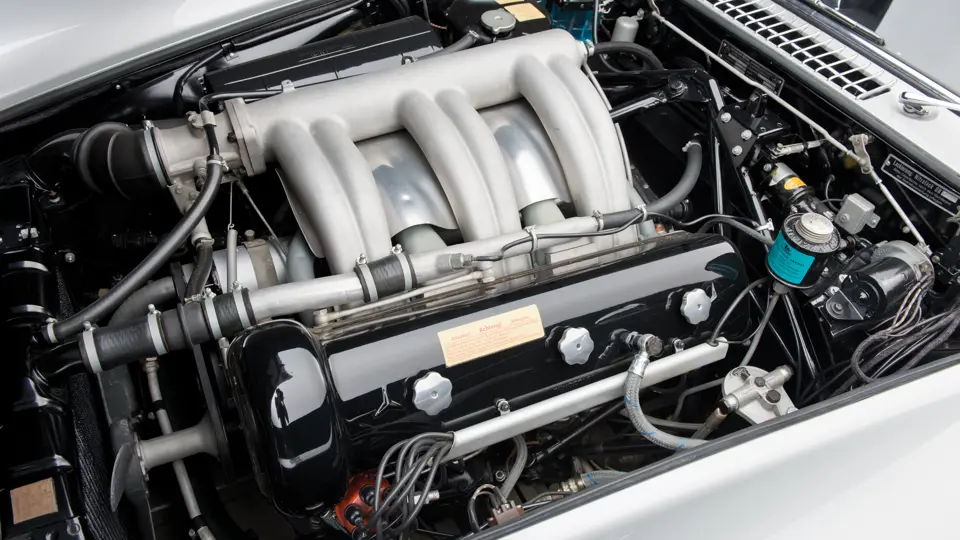
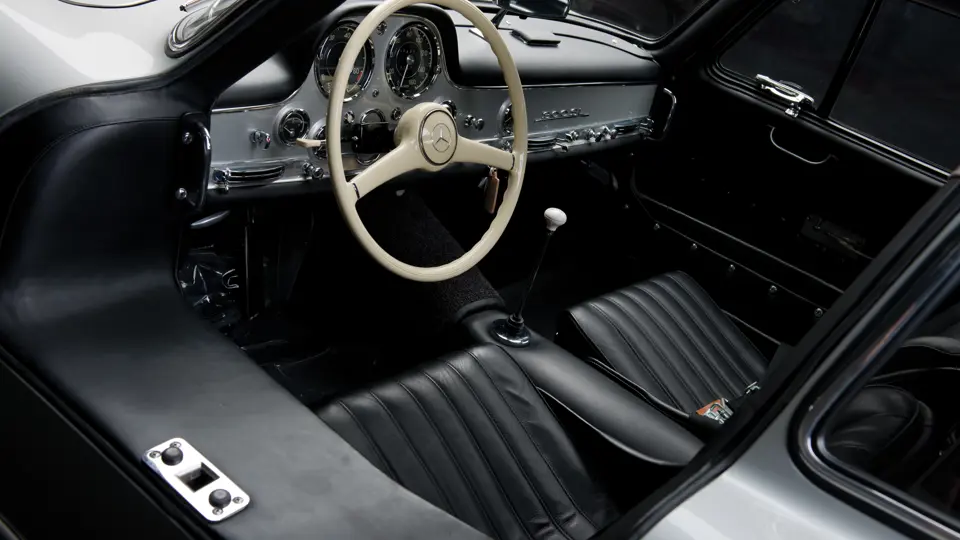

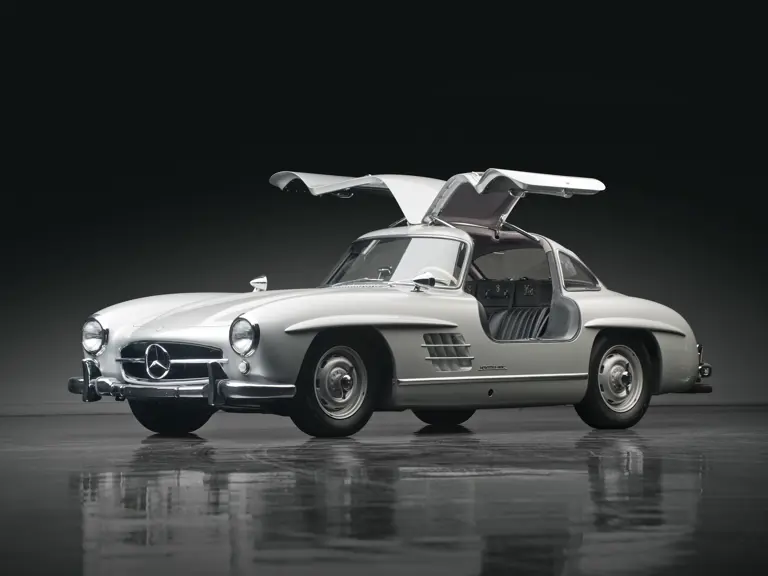
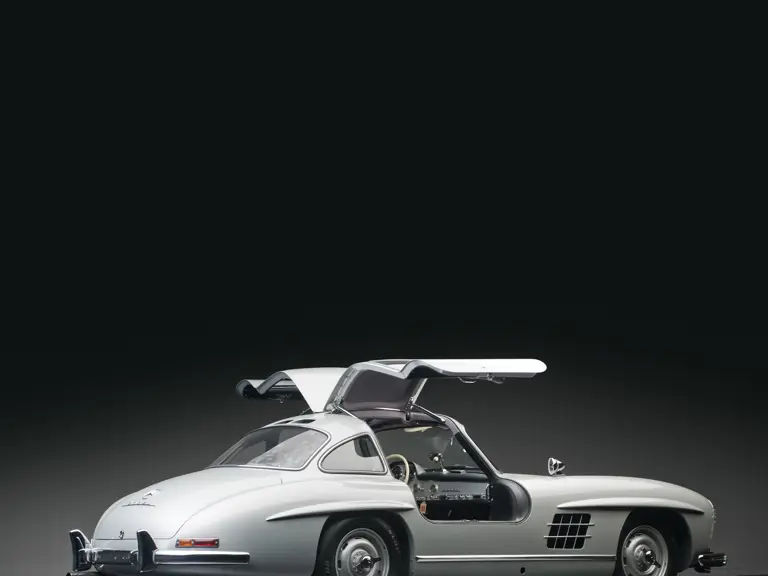
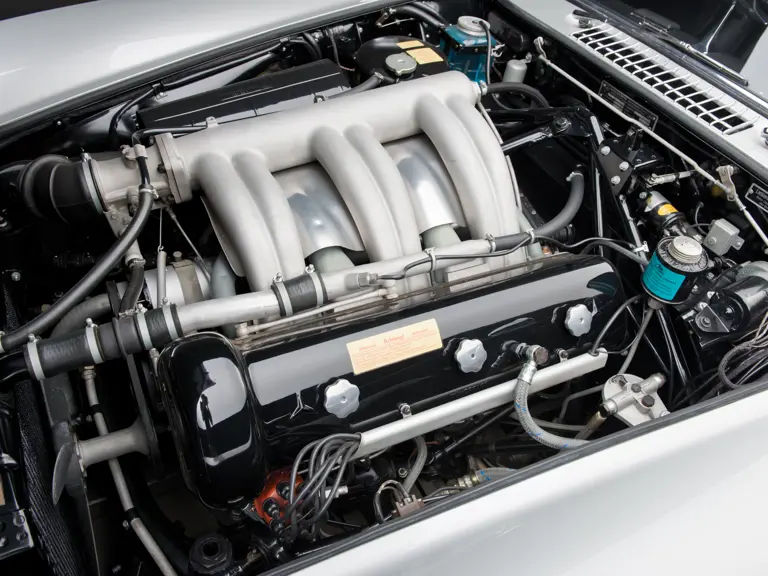
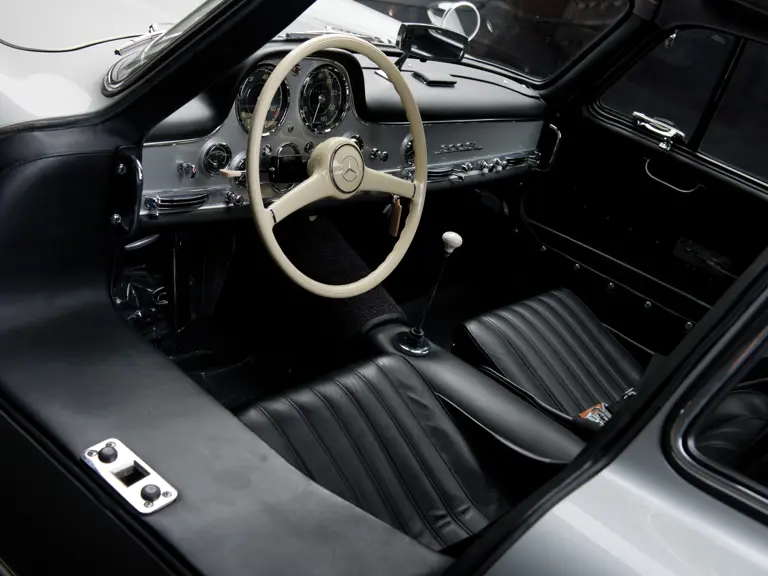
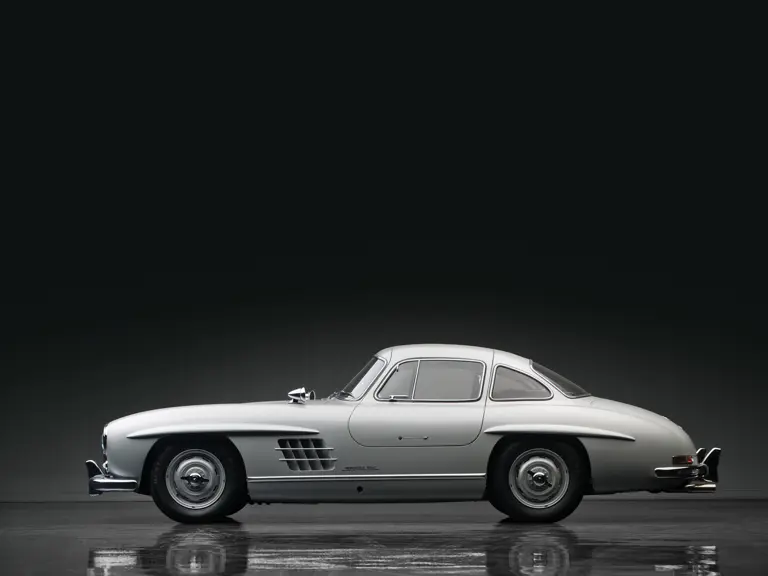
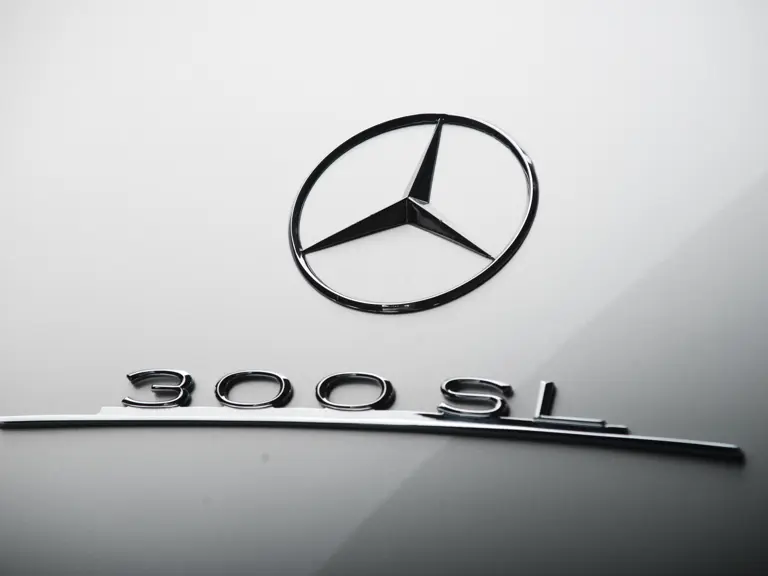
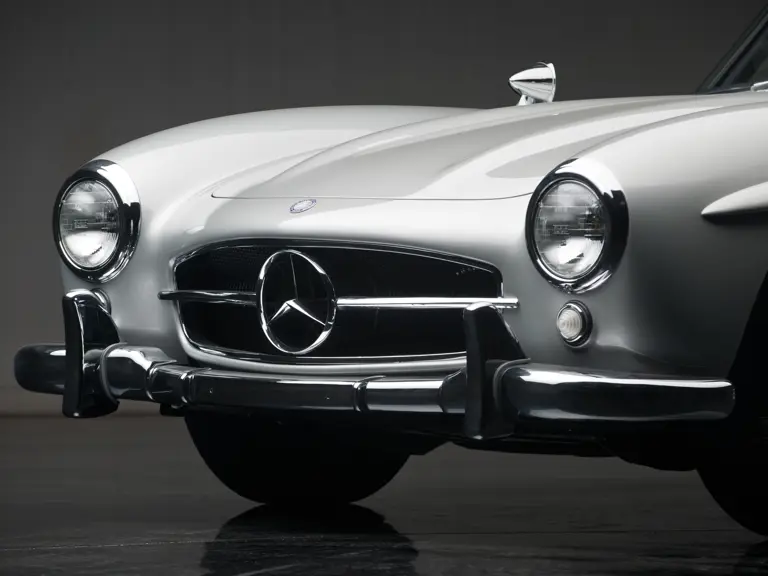
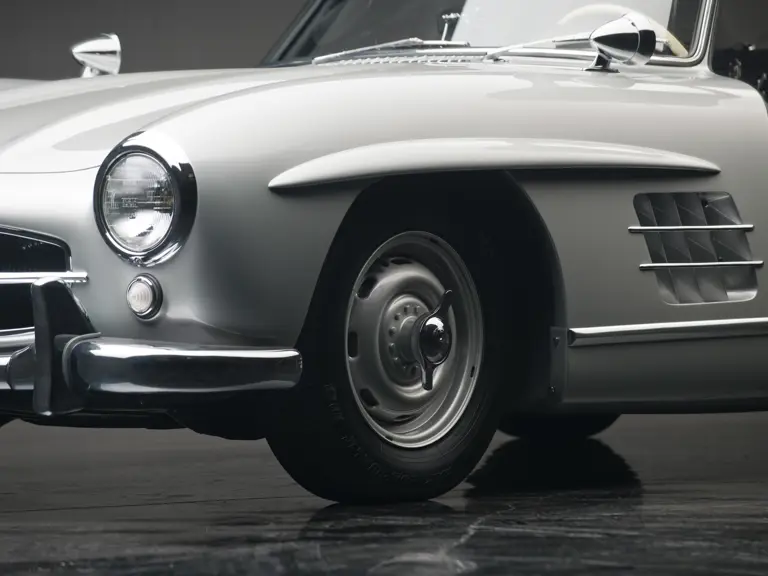
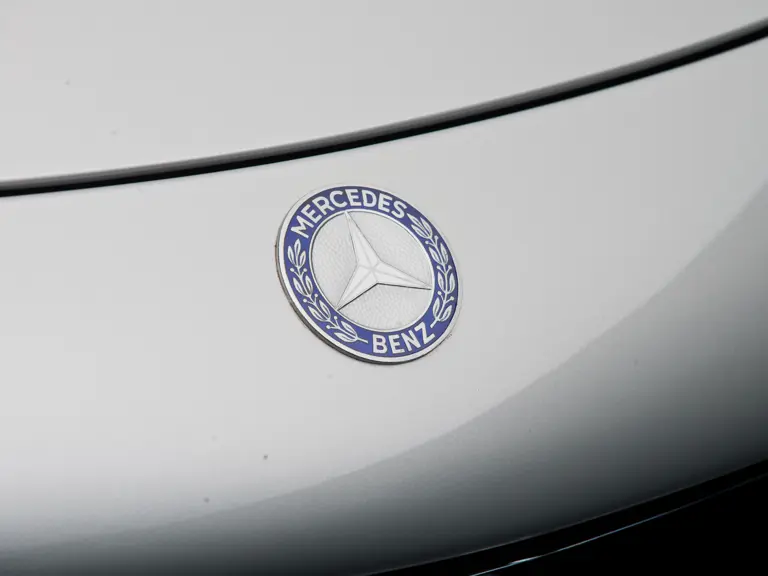
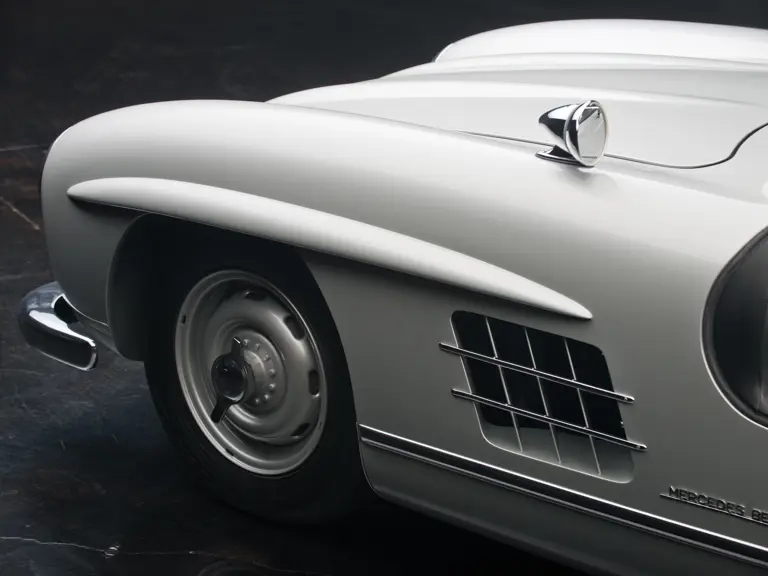
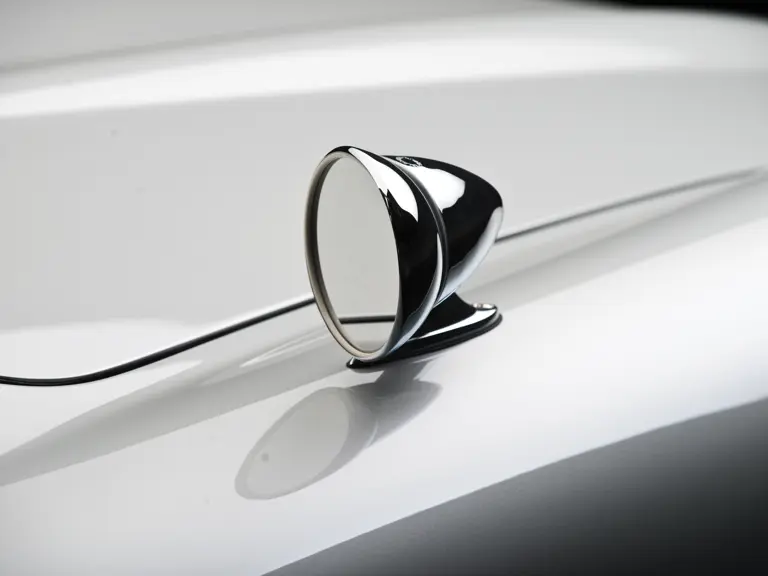
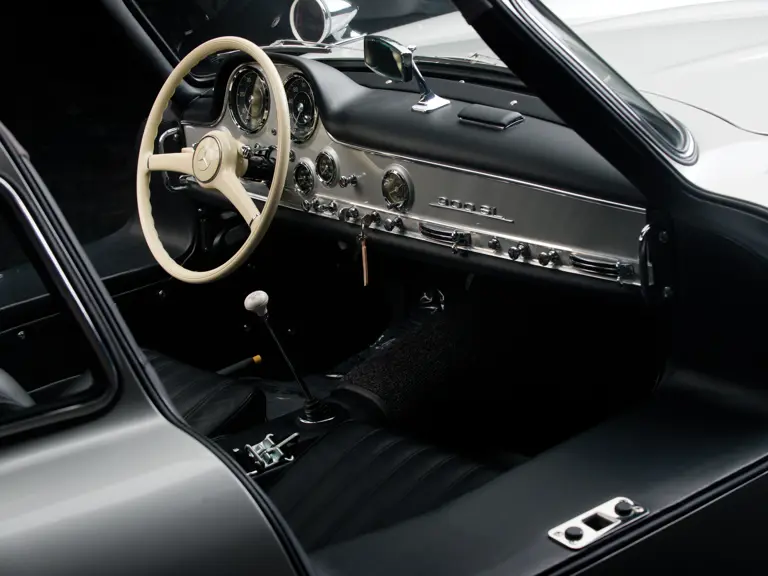
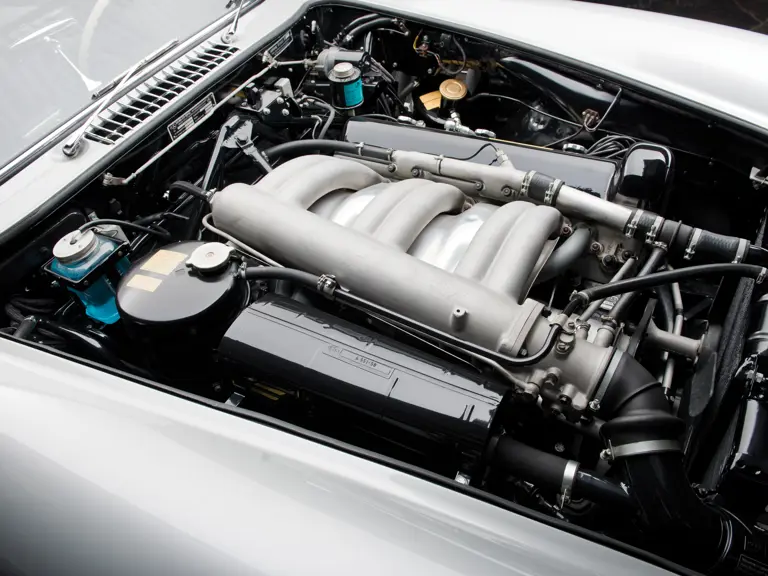
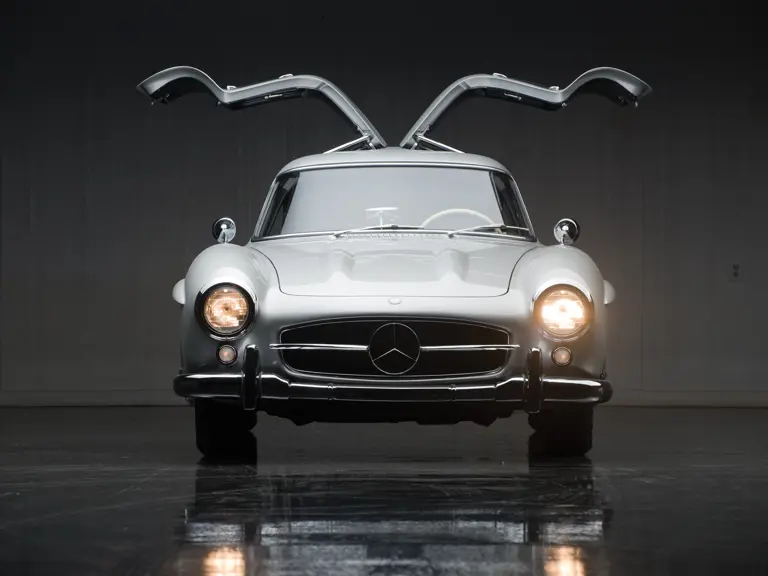
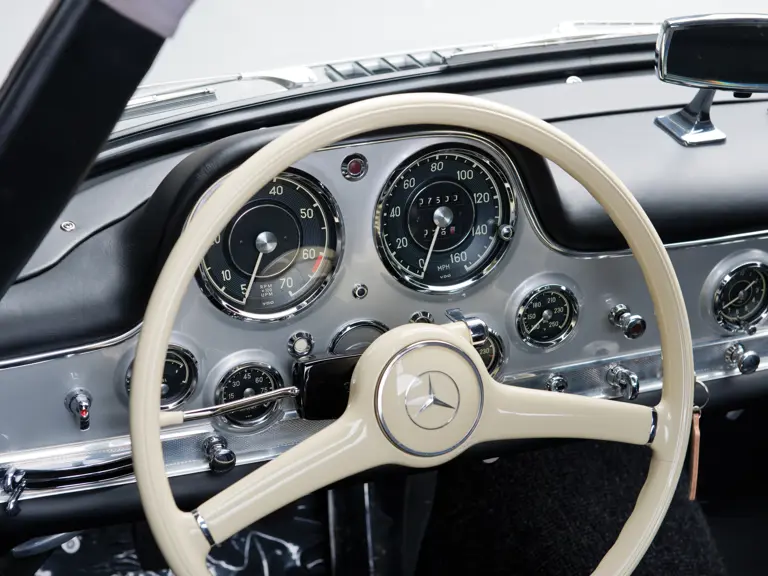
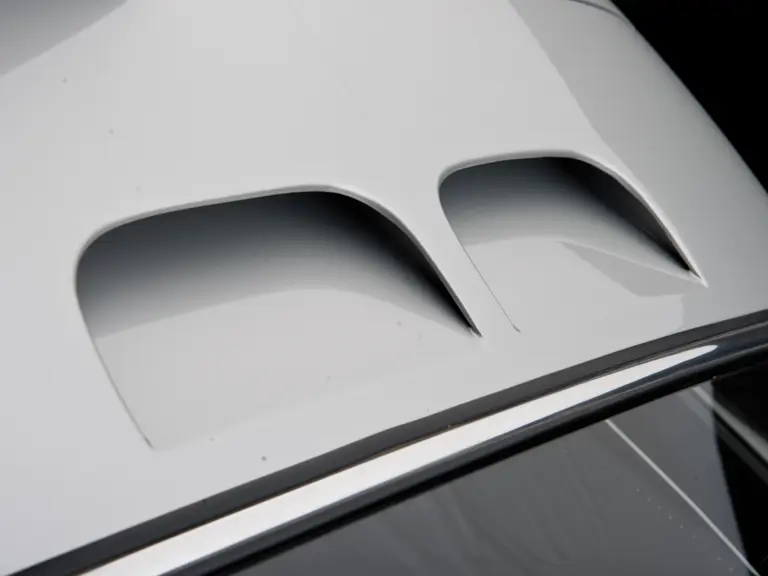
 | Fort Worth, Texas
| Fort Worth, Texas
